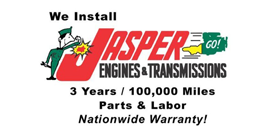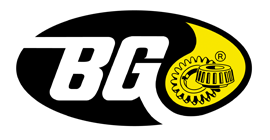-
Hours
- Mon 10:00AM - 5:00PM
- Tue 10:00AM - 5:00PM
- Wed 10:00AM - 5:00PM
- Thu 10:00AM - 5:00PM
- Fri 10:00AM - 5:00PM
- Sat Closed
- Sun Closed
- MORE >
-
Matt Davis Auto
875 US Highway 70 W
Garner, NC 27529
AUTONET TV
Archive for December 2023Tacky or Techie? The Tachometer.Posted December 31, 2023 8:53 AMThere's a gauge that many vehicles have that says RPM on it. And there are a lot of people who either don't pay any attention to it or don't even know what it is. Here's why it's a good gauge to know about. It's called a tachometer, and that "RPM" label means it is measuring how many revolutions per minute (RPM) the engine is turning. Automotive experts know that a vehicle's engine can be damaged if it turns too fast (revving too high) or too slowly ("lugging" the engine). A tachometer (sometimes called a tach) is almost a "must-have" gauge for vehicles with a manual transmission; the driver has to manually change gears; the tach helps the driver know when revolutions are in the optimal range. Some say you don't need a tachometer if you drive a vehicle with an automatic transmission. It's true that most drivers of automatics don't even look at it. But there are times when paying attention to the tach can help you prevent an expensive repair. Here's a good example. Manufacturers now build many of their automatic transmission vehicles with shift paddles. They let you shift gears without a clutch. That's manual shifting, and drivers need to know they're not revving the engine too high. That's where the tachometer comes in, since it shows you visually when you are in the red zone (RPM too high). Here's another way the tach can help you: fuel economy. Generally speaking, the lower the RPM, the better the fuel economy. It's not good to go too low, of course, and the tachometer will help you find that spot of maximum efficiency. You can also spot problems by paying attention to the tach. When your vehicle stays in first gear longer than usual (higher reading on the tach), then the RPM dip lower than usual after shifting, it may be that your vehicle's transmission is skipping a gear. Plus, if your vehicle's RPM go up but your speed doesn't, it could mean your transmission is slipping. Either situation should be checked by a trained technician. If your commute takes you down some long grades, you might like to put your vehicle in a lower gear to help slow down the car (and not burn up the brakes). Having a tachometer keeps tabs on when your engine is revving too high. So, consider the tachometer a "bonus" gauge. It's one more helpful assistant that can help you spot and prevent problems in your vehicle. Matt Davis Auto
875 US Highway 70 W
Garner, NC 27529
(919) 600-5125
Fuel System Cleaning at Matt Davis Auto in Garner for Better PerformancePosted December 24, 2023 9:59 AMA fuel injector is a valve that delivers fuel to a vehicle's engine. It has to deliver the precise amount of fuel to precisely the right place, precisely when the engine needs it. The fuel also has to be mixed with air before it can burn in the engine. Matt Davis Auto Distracted DrivingPosted December 17, 2023 1:17 AMWhen asked, most people think they are good at multi-tasking. Scientific studies, however, reveal that only around 2% of the population can truly demonstrate the capacity to effectively multi-task. For the rest of us who are not so biologically wired, no amount of practice can increase our effectiveness at multi-tasking. Turns out, multi-tasking is almost a superpower. Think of fighter pilots: capable of maintaining their orientation in three dimensional space and performing specific and highly complicated functions while accessing life threatening situations and coming up with an appropriate response. Admit it – you can’t do that. Yet when it comes to driving, we seem to think we are very capable of safely operating a motor vehicle with myriad distractions. 77% of young adults feel somewhat confident that they can safely text and drive while 55% claim it’s easy to text and drive. Can they possibly be right? Let’s look at some statistics. Nearly 23% of all accidents in the United States involve cell phones. Every day, 11 people are killed and over 900 are injured in texting-related accidents. In fact, texting while driving is six times more likely to cause an accident than driving intoxicated. Just think back at your own experiences: how many of your “near misses” as a pedestrian or in a vehicle have involved a driver with a cell phone in their hand? There are three types of driving distractions:
Of course, texting or using a cell phone involves all three. Eating, applying make-up, arguing and working on-board features like the stereo and navigation system are all very real distractions. You may be interested to know that hands-free cell calls are not substantially safer than using a handheld phone. Any time you glance away from the road (like looking at a text or incoming phone call) your eyes are off task for at least 5 seconds. At 55 miles per hour/90 kph, you will cover the length of a football field in that time. Would you ever consent to strapping on a blindfold and driving off down the road for that distance? So what do you do? First, accept the fact that you are not part of the 2% of all the people on the planet who can truly multi-task (if you are one of the lucky ones you would know by now because your performance does not degrade no matter how many additional tasks are added). Next, don’t EVER drive distracted. Incoming text: it will wait for later. Juicy hamburger: eat it in the parking lot. No exceptions, ever. And don’t accept anything less from drivers of vehicles in which you are a passenger. Another way to avoid distractions is to keep on top of scheduled maintenance and necessary repairs so that your vehicle itself doesn’t become a distraction. We can help you with that. Give us a call. Matt Davis Auto The Flat Fix that Fits (Tire Repairs)Posted December 10, 2023 7:19 AMCan you think of anyone who likes getting a flat tire? Of course not. But when one of your tires winds up with a flat or leak, whether it be from things like hitting a curb, running over a nail or picking up a sharp stone, it's time to have someone who knows what they're doing take care of it. If you're thinking you'd like to avoid having to buy a new tire, you wonder if a patch or plug will suffice. It depends where the puncture is and how big the hole is. Most tire experts will say if the hole in the tire is less than ¼ of an inch or 6 mm, a patch can work. But a patch likely won't work if the compromised part of the tire is on its shoulder or sidewall. Here's why. The shoulder of a tire is the part between the sidewall and tread and it's usually rounded. It's under a lot of pressure, more than even the sidewalls. And because of that curved shape, it's hard to get a patch or plug to hold. The sidewall is the side of the tire. Sidewalls flex a lot when you drive, and the strain can cause a patch or plug to loosen up. A weak spot in a sidewall is much more likely to fail and cause a blowout. So if you have damage in the sidewall or shoulder, that tire is a good candidate for replacement, not repair. If you have a cut or gash in your tire, it's possible the cords that strengthen your tire have also been cut. That weak spot can spell trouble, and this type of damage usually means you should get a new one. Your service advisor can tell you what the appropriate action is to take when you have tire damage. You may be able to get good results with a patch, or you may have to replace one or more tires. Your safety is riding on them. Matt Davis Auto Sounds Like a Hot Rod (Noisy Exhaust System)Posted December 3, 2023 8:40 AMDriving along, your exhaust system's rumbling so loud that people turn and stare at you pass by. You're wondering when the police are going to pull you over for illegal noise. Your mind immediately thinks, aha! A broken muffler. Well, your exhaust system is composed of many more parts than just a muffler. Your engine makes power because of thousands of tiny explosions from detonating fuel. Those explosions make a racket, so engineers came up with a system that acoustically dampens that sound in addition to getting rid of harmful exhaust. In the engine is the exhaust manifold that looks like several pipes that join up into one pipe. It directs exhaust to the catalytic converter. The catalytic converter converts harmful gases into less harmful gases using certain chemical reactions. Then comes the muffler that has baffles inside to quiet the sounds of your engine noise. Finally: the tailpipe. All of those pipes and parts are joined together by clamps and held up by brackets, and they ride over some pretty bumpy roads. They are also exposed to the elements, like salt, water, rocks and grit. Chances are that one of those clamps or brackets has been weakened by corrosion. When you hit a bump, bingo! The crack widens into a gap and there's a spot for the engine noise to come roaring out instead of being directed into the muffler's quieting chambers. You might be surprised to know that the exhaust system can rust from inside out. How? Moisture is one component of exhaust, and moisture on the inside can do the same kind of damage as moisture from the outside. It's a good idea to have your exhaust system looked at regularly by a technician. He or she can evaluate the condition of the metal and recommend when it might be time to replace parts before they break. Then you'll have a decision to make. Newer exhaust systems are made out of stainless steel that is much less prone to corrosion issues. Others are made of aluminized steel that also fights rust. You've probably already guessed that they can cost more, but the extra price up front may give you an exhaust system that will last much longer. Sure, with a repaired exhaust system, you won't have quite the head-turning vehicle you once had. You'll just have to live with all the quiet.
| ||
SearchArchiveMarch 2016 (15)April 2016 (4) May 2016 (5) June 2016 (4) July 2016 (4) August 2016 (5) September 2016 (4) October 2016 (4) November 2016 (5) December 2016 (4) January 2017 (5) February 2017 (4) March 2017 (4) April 2017 (4) May 2017 (4) June 2017 (5) July 2017 (5) August 2017 (3) September 2017 (3) October 2017 (4) November 2017 (5) December 2017 (3) January 2018 (5) February 2018 (4) March 2018 (4) April 2018 (4) May 2018 (5) June 2018 (4) July 2018 (5) August 2018 (4) September 2018 (5) October 2018 (4) November 2018 (4) December 2018 (5) January 2019 (5) February 2019 (4) March 2019 (5) April 2019 (4) May 2019 (4) June 2019 (5) July 2019 (4) August 2019 (4) September 2019 (5) October 2019 (4) November 2019 (4) December 2019 (5) January 2020 (5) February 2020 (4) March 2020 (5) April 2020 (4) May 2020 (5) June 2020 (4) July 2020 (4) August 2020 (5) September 2020 (4) October 2020 (4) November 2020 (5) December 2020 (4) January 2021 (6) February 2021 (4) March 2021 (4) April 2021 (4) May 2021 (5) June 2021 (4) July 2021 (4) August 2021 (5) September 2021 (4) October 2021 (5) November 2021 (4) December 2021 (4) January 2022 (6) February 2022 (4) March 2022 (4) April 2022 (4) May 2022 (5) June 2022 (4) July 2022 (5) August 2022 (4) September 2022 (4) October 2022 (5) November 2022 (4) December 2022 (4) January 2023 (5) February 2023 (4) March 2023 (4) April 2023 (5) May 2023 (4) June 2023 (4) July 2023 (5) August 2023 (4) September 2023 (4) October 2023 (5) November 2023 (4) December 2023 (5) January 2024 (5) February 2024 (4) March 2024 (5) April 2024 (3) | CategoriesParts (7)Automotive News (5)Differential Service (3)Older Vehicles (4)Diesel Maintenance (1)Tires and Wheels (35)Diagnostics (5)Monitoring System (2)Shocks & Struts (9)Engine Air Filter (2)Trip Inspection (3)Cooling System (12)Serpentine Belt (4)Steering (11)Service Intervals (7)Maintenance (45)Transmission (7)Battery (14)Fuel System (38)Service Standards (12)Safety (6)Timing Belt (6)Drive Train (6)Fluids (12)Check Engine Light (5)Keys to a long lasting vehicle (3)Windshield Wipers (7)Suspension (2)Cabin Air Filter (7)Emergency Items (1)Brakes (13)Inspection (6)Exhaust (8)Air Conditioning (12)Alignment (13)Winter Prep (4)Alternator (4)What Customers Should Know (50)Fuel Saving Tip: Slow Down (2)Dashboard (3)Fuel Economy (6)Auto Safety (7)Customer Detective Work (1)Wheel Bearings (1)Headlamps (2)Oil Change (5)Tires (8)Winter Tires (1)PCV Valve (1)TPMS (1)Spark Plugs (1)Safe Driving (1)Water Pump (1)Tire Rotation and Balancing (2)Brake Service (2) | |
SAVINGS & SPECIALS
Matt Davis Auto
-
Matt Davis Auto - Garner
875 US Highway 70 W
Garner, NC 27529
-
Matt Davis Auto - Clayton
13401 US 70 Business Hwy West
Clayton, NC 27520











